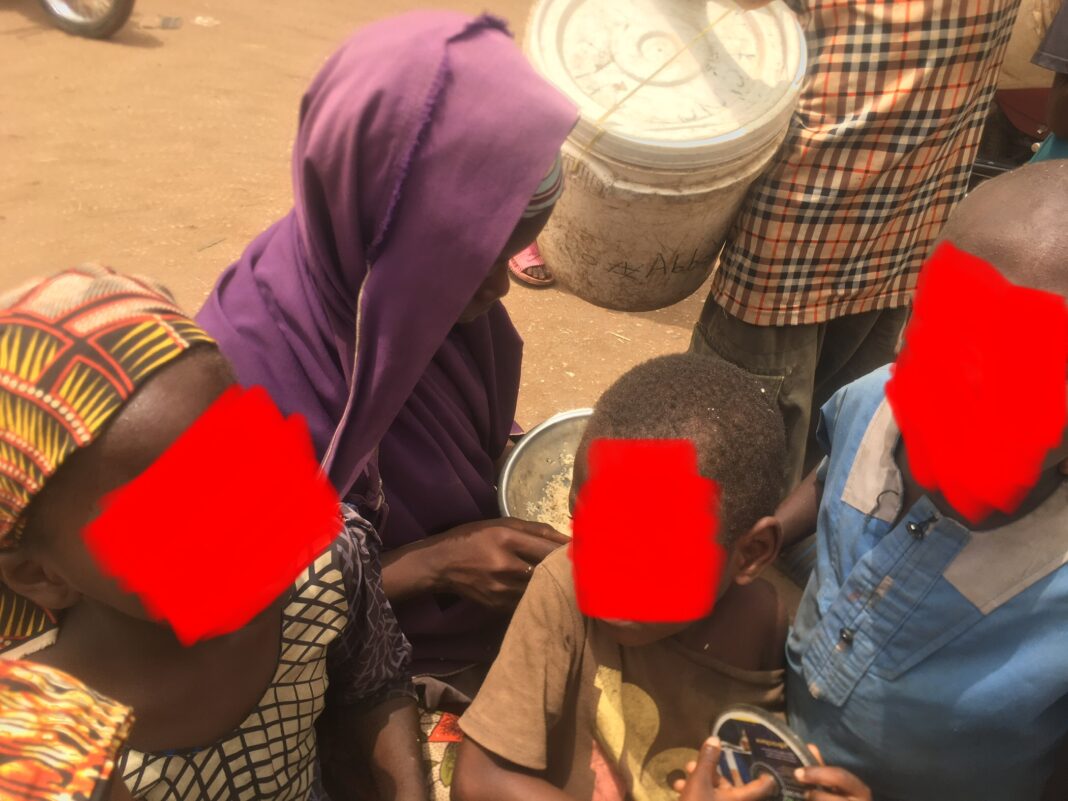On 26 October 2025, NAPTIP announced the dismantling of a major child-trafficking and illegal-adoption ring operating out of Benue State and the Federal Capital Territory (FCT), Abuja. The agency rescued at least 26 children, aged between one and thirteen, and arrested a 60 year old male orphanage owner and founder of a nationally recognised child rights organisation, along with three accomplices.
Preliminary findings indicate that the network trafficked over 300 children, with about 274 still untraced, and arranged illicit adoption transactions at between ₦1 million and ₦3 million per child. The children were recruited from rural, conflict-affected communities in Benue’s Guma Local Government Area (particularly Daudu, Yelwata and Ngban) and transported to “orphanage homes” in Abuja and Nasarawa, where they were subsequently sold under the guise of legal adoption.
According to NAPTIP’s account, the syndicate employed a false humanitarian initiative titled the “Back to School Project” to gain trust from vulnerable families, promising educational support in exchange for the release of children. Parents were misled into signing purported consent documents (or gave verbal consent) believing they would see the children again after three years. Some families signed nothing.
Once collected, the traffickers allegedly altered children’s identities, issuing new names and fabricated birth records to frustrate tracing efforts. Investigators traced orphanage homes linked to the network: locations along Kaigini, Kubwa Expressway (Abuja), Masaka Area 1 and Abacha Road, Mararaba in Nasarawa state. These homes have been sealed pending investigation.
The arrest of the syndicate’s leader is particularly notable given his status as a prominent founder of the National Council of Child Rights Advocates of Nigeria (NACRAN) and his membership of the Orphanage Owners’ Umbrella body in Nigeria, raising concerns over how trusted welfare institutions can be co-opted into criminal networks. NAPTIP Director General Binta Adamu Bello described the case as “unbelievable and mind-boggling,” and emphasised that “our children are not commodities to be displayed in orphanages and sold at will to the highest bidders.”
From a policy perspective, the operation exposes multiple fault lines: First, the vulnerability of rural, conflict-affected communities to recruitment under the guise of humanitarian offers. Benue State, subject to farmer-herder conflicts, presents many families with acute economic and social pressures. Second, the blurring of charitable and criminal activity: the network’s use of NGO branding, orphanage credibility and adoption language chills trust in the welfare sector. Third, the regulatory environment: while Nigeria has laws against trafficking and illegal adoption, enforcement capacity, inter-state coordination, and adoption oversight appear weak.
The human impact is stark. For the children involved, the trauma of separation, relocation, identity erasure, and commercial sale is profound. For parents and communities, the betrayal of trust by those claiming to help is deeply destabilising. For the state, the challenge is both criminal (prosecution of traffickers) and structural (building systems of prevention, oversight, rescue, rehabilitation and reintegration).
This case also highlights the necessity for rigorous adoption and orphanage regulation. Authorities must ensure that NGOs, orphanages and adoption agencies are properly registered, vetted, and subjected to oversight. The existence of a network size of over 300 children underscores the scale of the challenge and suggests systemic gaps rather than isolated incidents.
Moving forward, key issues to watch include:
(a) the progress of the investigation and whether the remaining children can be traced and reunited with their families;
(b) the prosecution of accused syndicate members and whether legal outcomes provide a deterrent;
(c) reforms in adoption legislation, orphanage regulation and public awareness campaigns, particularly in rural conflict zones;
(d) the broader patterns of child trafficking across Nigeria, especially the intersections of conflict displacement, poverty, and criminal enterprise.
The uncovering of this child-trafficking ring in Benue State represents a significant breakthrough by NAPTIP. But it also serves as a sobering reminder of how vulnerable children are when exploitation hides behind benevolence. As Nigeria aims to protect its youngest citizens, the real test will be whether the system learns and acts, transforming this crisis into a catalyst for stronger safeguards, deeper supervision and a culture that views children not as commodities, but as rights-bearing individuals worthy of protection.

